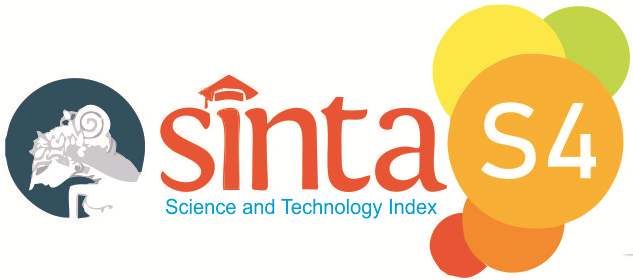Effect of scientific learning approach on mathematical problem-solving ability of junior high school students
DOI:
https://doi.org/10.32332/j39tb802Keywords:
scientific approach , problem solving, quantitativeAbstract
The scientific approach in learning at school aims to familiarize students with thinking, discussing and creating using scientific principles and steps. Therefore, the aim of this research is to increase student activity and find out how the scientific approach influences class students' problem solving abilities. VIII Kartikatama Metro Middle School. Through problem solving abilities students can develop students' thinking abilities to be able to connect the knowledge and skills that students already have to solve the problems given. This research is quantitative research. The research location is Kartikatama Metro Middle School. The subjects in this research were 25 experimental class students and 25 control class students. The data collection technique used was the Posttest test. Data analysis techniques are carried out by testing research instruments, analysis testing and hypothesis testing using the t test. Based on the research results, the Sig value was obtained. (2-tailed) is 0.11<0.05, which means that there is an influence of the scientific approach model through the problem solving abilities of class VIII students at SMP Kartikatama Metro or in other words the average problem solving ability of students in the experimental class is better than average - average problem solving ability of control class students.
References
Abidin, A. M. (2019). Kreativitas Guru Menggunakan Model Pembelajaran Dalam Meningkatkan Hasil Belajar Siswa. Didaktika, 11(2), 225. https://doi.org/10.30863/didaktika.v11i2.168
Hasanah, N., Lubis, R. R., & Sari, B. P. (2020). Pengaruh Model Problem Based Learning Terhadap Kemampuan Pemecahan Masalah Siswa Sekolah Dasar. Jurnal Sintaksis: Pendidikan Guru Sekolah Dasar, IPA, IPS Dan Bahasa Inggris, 2(1), 29–37.
Hasriyani, A., Baharullah, B., & S, A. (2022). Perbedaan Model Problem Based Learning (PBL) Dengan Model Project Based Learning (PBL) Mengacu Pada Pendekatan Saintifik Terhadap Kemampuan Pemecahan Masalah Matematika Pada Siswa Kelas V SD Wilayah II Kecamatan Somba Opu Kabupaten Gowa. NATURALISTIC : Jurnal Kajian Penelitian Pendidikan Dan Pembelajaran, 6(2), 1173–1184. https://doi.org/10.35568/naturalistic.v6i2.1707
Hidayah, I. (2020). Analisis Standar Penilaian Pendidikan di Indonesia (Telaah atas Peraturan Menteri Pendidikan dan Kebudayaan Nomor 66 Tahun 2013). Jurnal Keislaman Dan Kemasyarakatan, 4(1), 85–105.
Ita, R., & Abadi, A. P. (2019). Kemampuan Pemecahan Masalah Matematis Berdasarkan Langkah-langkah Polya. Prosiding Seminar Nasional Matematika Dan Pendidikan Matematika Sesiomadika 2019, 2(1D), 1059–1065. https://journal.unsika.ac.id/index.php/sesiomadika/article/view/2452
Khoeriyah, D. A. N., & Ahmad, A. (2020). Penerapan Model Pembelajaran Problem Solving Dengan Pendekatan Saintifik Pada Kemampuan Penalaran Matematis Siswa Kelas VIII B SMP Negeri 1 Padamara. AlphaMath : Journal of Mathematics Education, 6(1), 62. https://doi.org/10.30595/alphamath.v6i1.7943
Nahdi, D. S. (2017). Self Regulated Learning sebagai Karakter dalam Pembelajaran Matematika. The Original Research of Mathematics, 2(1), 20.
Noor, A. J., & Husna, R. (2017). Meningkatkan Kemampuan Komunikasi Matematis Siswa Menggunakan Model Pembelajaran Kooperatif Tipe Student Teams Achiviement Division (STAD). EDU-MAT: Jurnal Pendidikan Matematika, 4(2). https://doi.org/10.20527/edumat.v4i2.2578
Nulfita, I. M. (2014). Implementasi Pendekatan Saintifik dan Karakter dalam Pembelajaran Sains Menyongsong Generasi Emas Indonesia. Prosiding Seminar Nasional Pendidikan Sains (SNPS), 1–7. http://jurnal.fkip.uns.ac.id/index.php/snps/article/view/4939
Nuralam, N., & Eliyana, E. (2018). Penerapan Pendekatan Saintifik Terhadap Kemampuan Pemecahan Masalah Matematika Di Sman 1 Darul Imarah Aceh Besar. Jurnal Ilmiah Didaktika, 18(1), 64. https://doi.org/10.22373/jid.v18i1.3085
Sagita, D. K., Ermawati, D., & Riswari, L. A. (2023). Kemampuan Pemecahan Masalah Matematis Siswa Sekolah Dasar. Jurnal Educatio FKIP UNMA, 9(2), 431–439. https://doi.org/10.31949/educatio.v9i2.4609
Sari, A. N., Wahyuni, R., & Rosmaiyadi, R. (2016). Penerapan Pendekatan Open-Ended untuk Meningkatkan Kemampuan Berpikir Kritis Siswa Pada Materi Aljabar Kelas VIII SMP Negeri 10 Pemangkat. JPMI (Jurnal Pendidikan Matematika Indonesia), 1(1), 20. https://doi.org/10.26737/jpmi.v1i1.78
Sudirman, S., Kistiono, K., Akhsan, H., & Ariska, M. (2020). Pengembangan Instrumen Penilaian Pengetahuan, Sikap Dan Keterampilan Ipa Berbasis Berpikir Kritis Pada Konsep Listrik Siswa Smp. Jurnal Inovasi Dan Pembelajaran Fisika, 7(1), 28–40. https://doi.org/10.36706/jipf.v7i1.10903
Wulandari, F. (2016). PENERAPAN MODEL PEMBELAJARAN INKUIRI TERBIMBING Proses pembelajaran Ilmu Pengetahuan Alam menekankan pada pemberian pengalaman langsung untuk mengembangkan kompetensi agar menjelajahi dan memahami alam sekitar secara ilmiah . Pembelajaran Ilmu Pengetahuan. Jurnal Pedagogia, 5(2), 267–278.
Downloads
Published
Issue
Section
License
Copyright (c) 2024 Melyana Saragi, Fertilia Ikashaum

This work is licensed under a Creative Commons Attribution 4.0 International License.

















